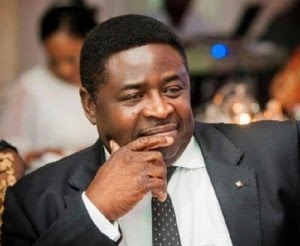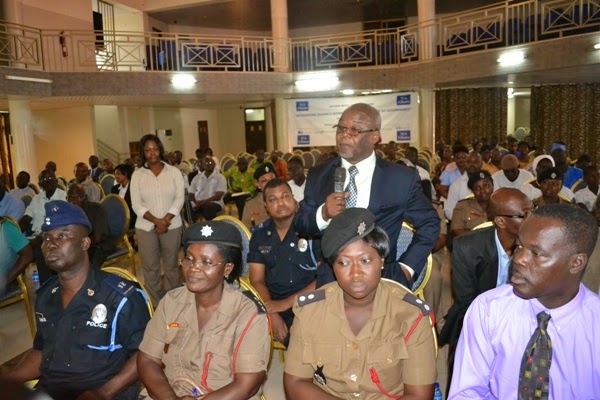The
French President François Hollande has praised Ghana for her strides in
economic growth and democratic practice, saying Ghana’s achievements in those
areas in African are worth emulating.
He
has therefore, assured of France’s continued support towards enhancing Ghana’s
democracy good governance and economic development.
 |
| Ambassador Johanna Odonkor Svanikier, with President François Hollande at the Élysée Palace in Paris during the event |
President
Hollande said this during an interaction with Ghana’s Ambassador to France Mrs.
Johanna Odonkor Svanikier, at the Élysée presidential palace in Paris last
Friday. The decision which focused on bilateral relations between the two
countries and political developments in West Africa, was held after the
ambassador, who is also Ghana’s Permanent Delegate to UNESCO and the
International Organisation of La Francophonie, presented her Letters of
Credence to the French President at a brief colourful ceremony at the palace.
President
Hollande Ghana’s said democratic credentials had earned it an enormous prestige
and respect around the world, and urged the government, political parties,
civil society groups and all stakeholders to continue to work together in
protection that nation’s remarkable democratic status.
He
lauded Ghana’s immense contribution towards regional peace and development, as
well as health and the fight against Ebola.
President
Hollande commended President John Mahama for his leadership role in the
sub-region, and pledged Fance’s renewed support and partnership with Ghana.
He
commended Mrs. Svanikier on her achievement as the new ambassador to France and
wished her a successful tour of duty tour, adding that the French government
would offer her the necessary assistance and cooperation to ensure that she
succeeds in strengthening the ties between the two countries.
Ambassador
Svanikier thanked President Hollande for receiving her, and expressed her
appreciation for the good relationship that exists between the two countries,
and pledged to promote economic diplomacy in support of Ghana’s development
drive.
She
assured her host of her unwavering commitment to the further enhancement of the
political, economic and cultural cooperation between the two countries.
The
new Ambassador informed President Hollande that as Chairman of ECOWAS,
President John Dramani Mahama had recently visited the three Ebola afflicted
countries to pledge the solidarity of member states and to deliver the much
needed relief supplies. She explained further that, Ghana had become a
coordinating centre for delivering relief items to the affected countries.
On
governance in West Africa, she explained that President Mahama had led ECOWAS
demand compliance with the principles of democracy and constitutional
governance in Burkina Faso, towards achieving peace in that country after the
recent ousting of President Blaise Campaore.
Mrs.
Svanikier, who was recently appointed by President Mahama, holds a Master’s
Degrees in law from the London School of Economics, UK, a Masters in Public
Administration from Harvard University, U.S.A. and a Masters in Political
Science and International Relations Research from the University of Oxford,
U.K. She was a Fulbright Scholar at Harvard University and was called to
the Bar in England and Wales in 1991 and in Ghana in 1992.
She
has worked as a barrister, a university lecturer and a legal and development
consultant.
She
is a former leacturer at the University of Ghana and a Commissioner at the
National Development Planning Commission until her appointment.
She
is the author of several publications including "Womens' Rights and the
Law in Ghana."
Caption













